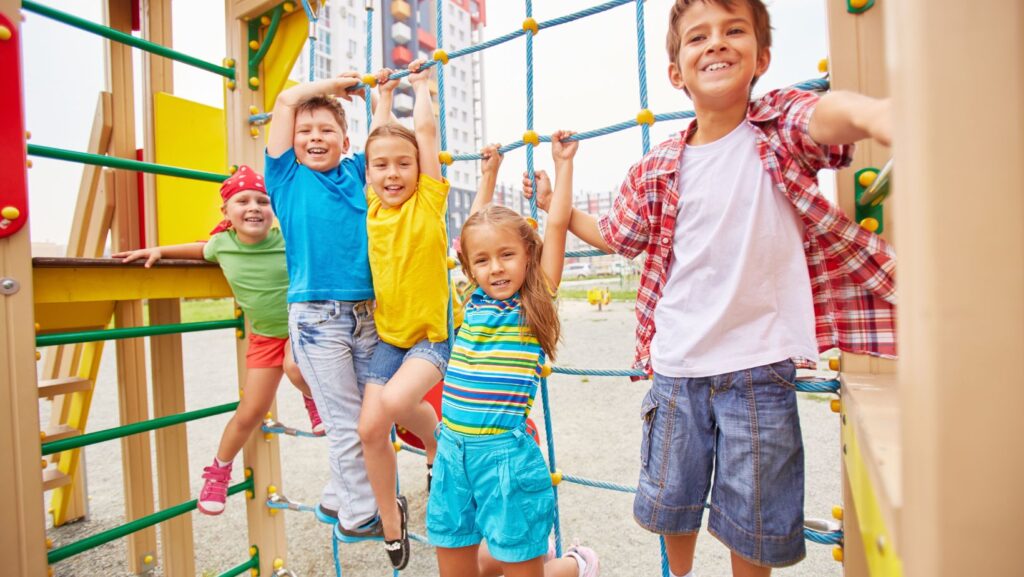In today’s fast-paced world, the play date trend has become increasingly popular among parents looking to foster social connections for their children. These structured meetups offer kids a chance to engage in interactive play, develop essential social skills, and build lasting friendships in a fun and supervised environment.
With the rise of digital distractions, play dates provide a valuable opportunity for kids to unplug, interact face-to-face, and engage in imaginative play. Parents recognize the importance of these gatherings in promoting healthy social development and creating memorable experiences for their little ones.
Play Date Trend
 In today’s fast-paced world, play dates have become a prevalent trend among parents. These gatherings offer children a valuable opportunity to engage in interactive play, improve their social skills, and cultivate lasting friendships in a supervised environment. With the rise of digital distractions, play dates serve as a platform for kids to disconnect from screens, engage in face-to-face interactions, and partake in imaginative play scenarios. Parents appreciate the significance of these play sessions in fostering healthy social development and creating meaningful childhood experiences for their little ones.
In today’s fast-paced world, play dates have become a prevalent trend among parents. These gatherings offer children a valuable opportunity to engage in interactive play, improve their social skills, and cultivate lasting friendships in a supervised environment. With the rise of digital distractions, play dates serve as a platform for kids to disconnect from screens, engage in face-to-face interactions, and partake in imaginative play scenarios. Parents appreciate the significance of these play sessions in fostering healthy social development and creating meaningful childhood experiences for their little ones.
The organized play dates not only encourage unstructured playtime but also enable children to establish genuine connections with their peers, fostering a sense of camaraderie that is essential for their overall growth and development.
Benefits of Play Dates
 Play dates play a crucial role in enhancing a child’s social development and emotional growth. Here are some key benefits: Play dates provide children with valuable opportunities to interact with peers in a supervised environment. By engaging in group play activities, kids learn important social skills such as sharing, taking turns, and resolving conflicts. These interactions help children develop empathy, cooperation, and communication skills essential for building and maintaining relationships later in life.
Play dates play a crucial role in enhancing a child’s social development and emotional growth. Here are some key benefits: Play dates provide children with valuable opportunities to interact with peers in a supervised environment. By engaging in group play activities, kids learn important social skills such as sharing, taking turns, and resolving conflicts. These interactions help children develop empathy, cooperation, and communication skills essential for building and maintaining relationships later in life.
Participating in play dates can boost a child’s emotional well-being by fostering a sense of belonging and inclusion. Children who regularly attend play dates often exhibit higher levels of self-confidence and self-esteem. Additionally, these interactions allow kids to express their emotions, practice empathy, and learn how to regulate their feelings in a supportive setting. Play dates provide a safe space for children to navigate social dynamics, build resilience, and grow emotionally.
Safety Concerns in Play Dates
 Safety is paramount when it comes to organizing play dates for children. Parents and guardians must prioritize ensuring a safe environment for kids to interact and play. Here are some key safety concerns to consider. Supervision: Children should always be supervised during play dates to prevent accidents and address any conflicts that may arise. It’s essential to have responsible adults present to oversee the activities and ensure the well-being of all children.
Safety is paramount when it comes to organizing play dates for children. Parents and guardians must prioritize ensuring a safe environment for kids to interact and play. Here are some key safety concerns to consider. Supervision: Children should always be supervised during play dates to prevent accidents and address any conflicts that may arise. It’s essential to have responsible adults present to oversee the activities and ensure the well-being of all children.
- Allergies: Inquiring about any food allergies or medical conditions the children may have is crucial before planning snacks or meals for the play date. Being aware of these allergies can help prevent any potential allergic reactions and ensure the safety of all participants.
- Home Safety: Making sure the play area is childproofed and free of hazards is essential. This includes securing cabinets, outlets, and potentially dangerous items to avoid accidents. Additionally, having a first aid kit on hand can be beneficial in case of minor injuries.
- Communication: Clear communication with the hosting family regarding any safety concerns or rules is vital. It’s important to discuss things like dietary restrictions, emergency contact information, and any specific rules or guidelines that need to be followed during the play date.
Play dates play a crucial role in fostering social skills, emotional well-being, and lasting friendships among children. By providing opportunities for unstructured play and genuine peer connections, play dates contribute to the development of essential social skills like sharing and conflict resolution. Prioritizing safety measures such as supervision, allergy awareness, and clear communication ensures a secure environment for children to socialize and have fun. In adapting to the challenges posed by the COVID-19 pandemic, virtual play dates have emerged as a valuable alternative, allowing kids to maintain social connections and engage in interactive play while emphasizing safety and emotional well-being.



